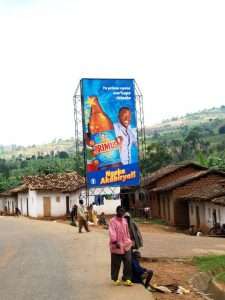Psychological defence
Reading Sebastian Faulks’ novel, “Where my heart used to beat”, there is a moment that is familiar, a moment that evokes deeply vivid memories:
“Being back in my own flat felt strange. The place didn’t seem to belong to me. Although I remembered where everything was kept and was able to operate the answering machine without a problem, I as though I was impersonating myself . . .
. . . In moments of extreme stress, a useful little mechanism is engaged by the brain, a circuit that has proved successful in our evolution: we detach. It feels unreal. We look at ourselves in the mirror as though at someone else; we speak out loud, such stuff as, “I don’t believe this is happening”. A version of this was clearly what I was experiencing now.”
Maybe everyone has such moments, a sudden sense of dislocation, of wondering what set of circumstances conspired to leave one in some unexpected place or circumstances. For me, such moments usually come far from home, a sudden angst at being in a place where loved ones are at a great distance, where there is a sense of being very alone and very vulnerable; a great homesickness falls like a smothering blanket, there is a desire to be transported Star Trek-like to a place of safety and familiarity.
Occasional moments have played out as scenes from a film, or more likely, a documentary. A moment in Burundi, far from possible diplomatic intervention, when keen awareness was important, played itself like scenes in which one was looking in from outside; a sense of not being engaged, not being in control.
It was a June Saturday afternoon and a friend had met me at the frontier post and reading now the description I wrote of the moment seems like reading a story about someone else. At the time it seemed like a documentary I was watching:
“We have some business to settle before we can go”. We walked through a huddle of ramshackle buildings south of the border that marked Burundi as a country significantly poorer than its northern neighbour. The business, it transpired, was to settle matters with a woman who claimed his car had knocked her over, “She walked into my car and then fell over”, he muttered.
The car was parked at the roadside in front of a shack that sold beer. There was no sign of skid marks, nor damage to the car – nor was there any sign of the woman. “We must wait for the police to arrive”.
A crowd gathered to watch, oblivious to the muzungu pastor standing among them. Eventually a motor cycle arrived, carrying a blue uniformed man on the pillion. He proceeded to take measurements of the road, at least fifty metres from where the alleged accident took place. He wrote numbers on a blank sheet of A4 paper and stood pondering them as if he were mathematician pondering a particular challenging piece of algebra.
Eventually, my friend said, “We can get into the car, we must go”. The policeman opened the front passenger door and got in. He spoke no English. “We must find the old woman”, my friend explained.
Perhaps ten minutes from the border, we turned and followed a dirt track. A poor wooden building with a veranda had a red cross painted on an outside wall. “There she is”, said my friend, pointing to a frail looking woman sat on a rough bench at the door of the building.
There were lengthy conversations. My friend turned and said, “have you any money?”
“US Dollars, Euro, Sterling, Rwandan francs, but nothing for here.”
“Give me 2,000 Rwandan francs, it’s to pay for her treatment”.
“What treatment?”
“They put a sticking plaster on her head”.
“€3 for a sticking plaster?”
He waved away my objection.
The story of the day was to continue with police corruption and physical danger and the whole day seemed unreal.
There is almost a sense of consolation in the idea that my response was an evolutionary defence mechanism and not just a failure to cope with reality.



Comments
Psychological defence — No Comments
HTML tags allowed in your comment: <a href="" title=""> <abbr title=""> <acronym title=""> <b> <blockquote cite=""> <cite> <code> <del datetime=""> <em> <i> <q cite=""> <s> <strike> <strong>